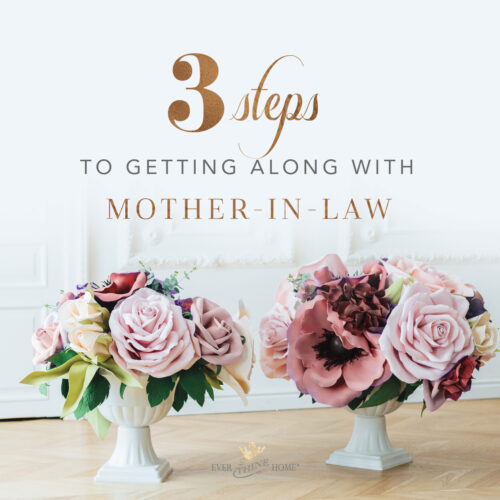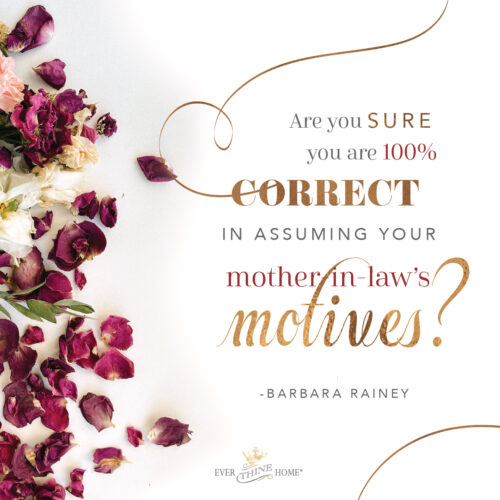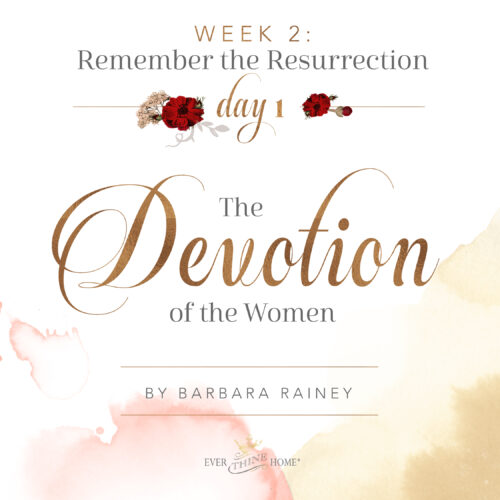
All six of our children had adjustments and challenges with their in-laws. Everyone does. We did too.
My mother-in-law and I could not have been more different. It seemed we had nothing in common. Her favorite hobby was fishing. She loved watching golf on TV. Both activities were foreign and of zero interest to me.
And not only was her generation radically different, but my family of origin was nothing like hers, which was very poor and not college educated. But she had a sense of humor. The problem was I didn’t get it. What they all thought was hilarious I didn’t.
She was kind to me and I respected her and appreciated her good parenting, memory making and cooking. I never felt close to her and in hindsight much of the blame was on me. I had no idea how to bridge the many gaps, so I stayed safely on the fringes, asking no questions and letting my husband, her son, have all the attention.
In our situation we lived hours apart, which greatly limited expectations on both sides. But that isn’t the case for many. So when your new husband tells you something like, “We go to my parents for lunch every Sunday,” and you had no idea it was expected weekly with no end date ahead, that creates instant tension.
Because expectations are almost always unspoken, mistakes are common on both sides of this often-strained relationship. Here are three tips for getting along with your mother-in-law or father-in-law.
1. Don’t assume motives.
As I wrote to the mothers-in-law in my post last week, I once heard a these wise words from a Christian counselor: “When we assume the motives of someone else, we are wrong most of the time.” It’s easy, for example, to feel like your mother-in-law is always taking your husband’s side in a conflict. It feels like she’s not actually trying to know you, that she’s merely working to fold you into her world rather than supporting you both.
There may be some truth to your gut feeling, but are you sure you are 100 percent correct in assuming your mother-in-law’s motives? If my counselor friend is right—and she has far more experience than I in coaching relationships—then you may have a few assumptions right but most are wrong.

Here is a truth about many women whose children are grown and between the ages of 50-60: They are in a season of lost identity. Her old job as mom and as the parent who knew everything about her kids and their lives has suddenly changed for good.
The loss is not just of kids, but of youth, parents and family members, a job or career, and of normalcy in marriage. Or perhaps your father-in-law recently retired and he’s driving her crazy. Or vice-versa! Because of these losses many mothers-in-law are experiencing an identity crisis. Many are depressed and lonely in this stage of life. This probably describes your new mother-in-law though she herself might be unaware.
The truth is that all mothers-in-law are broken. We humans are living in a fallen world, raising kids who are fallen including the one who you recently married. Sin does not stop in this life.
Making the situation more challenging is that some mothers-in-law are not believers or have never learned to understand grace and forgiveness. They are still living with a performance perspective, still trying to prove their worth … and now want you to prove your worth as well.
Or maybe your mother-in-law is of another faith, cultural, ethnic, or regional background. The two of you probably could not be more different. That’s a setup for misunderstanding. Personalities, histories, gifting, emotional balance, losses, and our individual stories all factor into this complex relationship.
Conclusion: What you see today is definitely not all there is. So don’t assign motives to your mother-in-law. You only know a thin slice of the whole truth. Courageously ask God to help you see her more clearly with His eyes and heart.
The most important quality you can own and grow for life is teachability. To recognize your inabilities and personal needs is the first step toward godly maturity in marriage and with your mother-in-law.
Failures, mistakes, and misunderstandings in relationships stop us in our tracks. We stall, assessing what went wrong, whose fault it was and what to do next. Difficulty and relational pain always present a fork in the road.
One road is labeled “I can do this.” Shame, personal self-ridicule, and anger become fuel which feeds a vow to redouble your efforts so the offense never happens again or never hurts you again.
The second road is labeled, “I can’t do this.” You feel the embarrassment of this failure while equally seeing clearly your inability to generate good toward this person. But instead of turning within to your personal task master, you take your whole self to God, the author of all relationships. Recognizing your lack of love, your inability to even be nice to this woman, is a very healthy place to be. It’s where you go with that knowledge that makes all the difference.
Being teachable means going to the power source of lasting life change. Many times in my life I have asked God to give me His love for others, even my husband, because I couldn’t produce love on my own. And there were times I didn’t want to love the person who’d offended me. Feeling justified that I was right felt much better in the moment. Augustine wrote, “Heal me of this lust of mine to always vindicate myself.” So true of me and you.

God has made it clear we are to honor our parents (Exodus 20:12). First you must make the decision to get along with your mother-in-law in spite of how you feel about her. He will help you find ways to honor her … to get along with her … if you chose the “I can’t do this on my own” road.
A word of caution: Choose your words carefully when you share your frustrations or anger at your mother-in-law with your husband. He has a natural and normal loyalty to her and may find it hard to reconcile his love for his mom and his love for you. Perhaps talking to someone older and wiser or a therapist first will give you language to use to help him understand you with grace and truth.
Conclusion: In the end, refusing to humbly go to God, refusing to ask for His transforming love, only adds bricks to an invisible wall between you and your mother-in-law or other relationships. And eventually these walls—built for protection—become a prison. Choose to be and remain teachable.
3. Trust in God.
In the Old Testament we find the story of Ruth, who chose her mother-in-law over her own family and home. In Ruth I see a young woman who depended unreservedly on Someone greater than herself.
The story makes it clear that Ruth’s mother-in-law, Naomi, was not a happy person. Can you identify with having an unhappy mother-in-law? Naomi verbalized her outlook on life when she told her friends to call her Mara, which means bitter. Naomi’s life losses had produced a heart of deep disappointment, cynicism, and bitterness.
What makes Ruth a strong woman was not her personality but her absolute faith in the God of Israel to provide what she lacked. She knew Naomi was unpleasant and that she herself was an outsider to the family of God. But Ruth saw hope in God, her Redeemer, that surpassed any bitterness of her mother-in-law.
Do you think Ruth was exceptional? Did Ruth have strengths, gifts, or options you don’t have? No, she was just like you, but her faith in the unseen God was greater and more important than her mother-in-law’s unhappy attitude. Faith is what marked her as an exceptional praise-worthy woman.
Fix your eyes on Jesus, all of you who grit your teeth when with your mother-in-law. Ask God to give you His love and grace because yours simply is not enough and never will be.
Conclusion: If you choose God’s way of love above all else, you will make your life and the body of Christ more beautiful, just as Ruth’s faith made her “a woman of excellence” (Ruth 3:11), known by everyone in the city.
I pray this will be true of you too.






Wonderful ans encouraging post! Thank you!